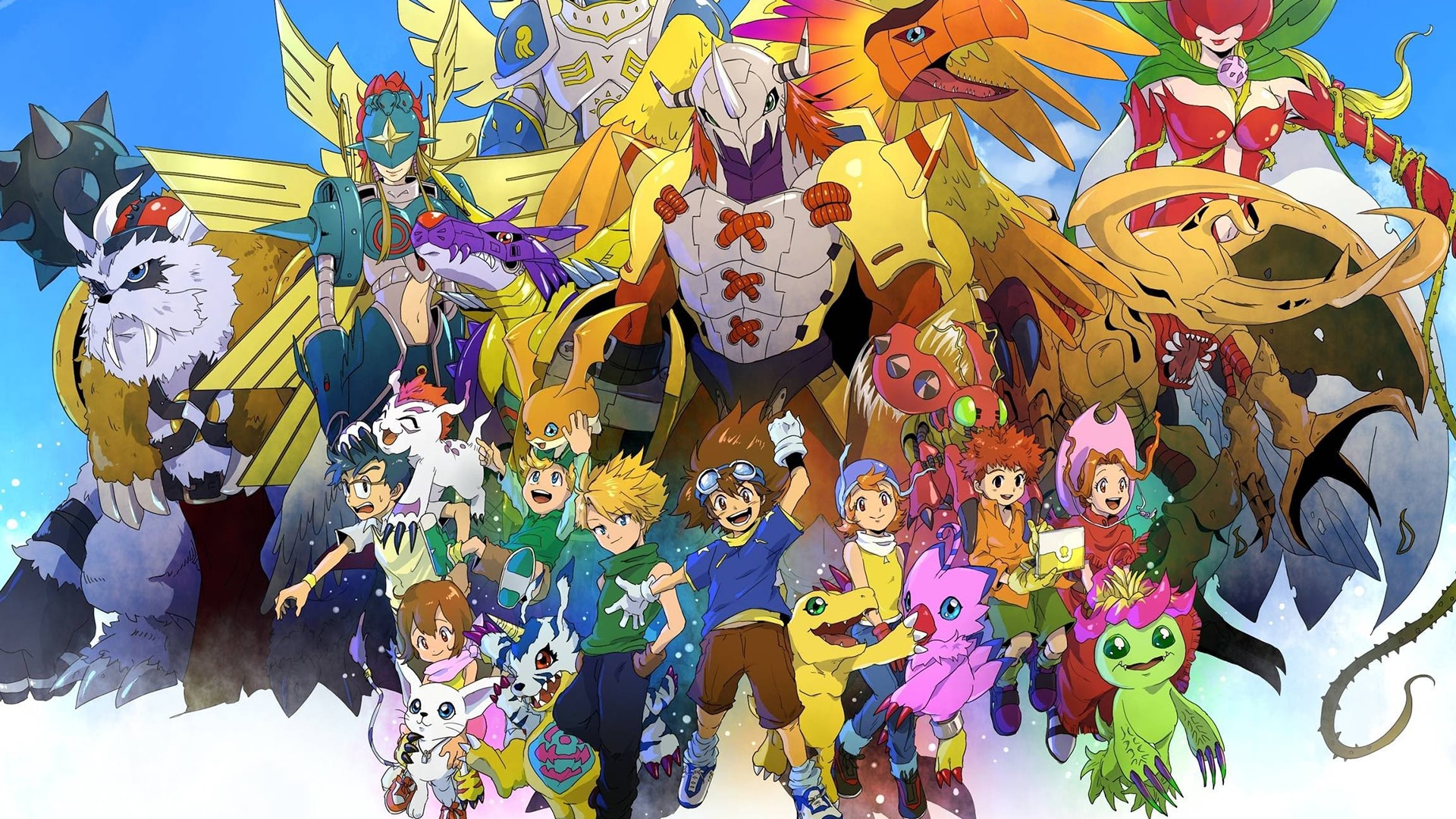
This is one of several articles that will dive into the significant differences of each show to provide critical analysis of the product instead of emotional responses of nostalgia noting how a consumer mindset is operated on based on animated stimuli.
When Pokémon hit American Television on WB Kids and toy stores, every major child’s televised programming stations scrambled to find remotely close to the same success it found on US soil. Not only did Pokémon find a home in American games, tv, toys, cards, stuffed animals, and collectibles; it spread worldwide and set a precedent for anime localization. Not too shortly after, Digimon began to air on Fox Kids, although the digital pet had its home already with its toys, it lived in Pokémon’s shadow for years.

What happened then is really close to what happens now where something successful hits the scene and studios try to duplicate it as masses want everything else to follow suit instead of opening the possibility the world has enough space to foster separate entities in art.
Let’s dive into it.
Pokémon, which is short for pocket monsters, had its own original content in Japan, which featured characters and games, named after colors, which was a normal naming convention of the time. Digimon, short for Digital Monsters who lived in the Digital World parallel to ours, which was a trending topic of exploring in many forms of fiction, but featured a revolving set of characters also had its original content based in Japan.

Both shows featured characters that befriend monsters in a world unlike our own, create bonds and battle them against each other around the central theme of friendship triumphs over all. So why the hate or love for one or the other? My point exactly! But for the sake of the article and argument, let’s not waste any more time.
The first and strongest reason Digimon is better than Pokémon is because it ends. Simply put, each season is its own arc, a self-contained story that uses themes, similar conventions in each iteration but explores the vast universe with new characters and rules creating a rich foundation for a larger weaved storyline.

Pokemon’s story revolves around Ash, who travels from one region to another with Pikachu and a revolving set of companions much like a beloved British show but just not with the same budget. The folly in this is that Ash never really ages and grows, although, like a good children’s program, he will face adversity and have some moral through line. But where the show is now (yes, it’s still going on) has fallen to the likes of SpongeBob or Dora the Explorer where you can jump in at any time and it wouldn’t matter because the main thing is someone needs help and Ash saves the day.
Although I will give credit that after twenty years it is trying to follow the games (which is closer to the source material of the manga), fight scenes are becoming more epic (don’t believe me? check out Greninja vs Mega Charizard), and storylines have more intricate complexities than its formative years.

Still, it pales into comparison when Digimon always has the world at stake, characters have to go through emotional strife facing the real world problems of being an outcast, being neglected by their parents, and struggle sibling rivalry and dysfunctionality in the real world Japan. Most of the time, the characters themselves take multiple episodes to overcome the doubt, depression, and jealousy; they don’t confine themselves to resolve in one episode. Again, Pokemon has multiple episodes dedicated to battles but it’s more of the Trainer versus another trainer’s way of life, a difference of ideologies and work ethic in a world where nothing dies. Whereas Digimon, they fight villains who want to destroy worlds, end life, and enslave people while also fighting the shadows in their own hearts.

Now, this happens in different ways with different characters spanning over decades in different parts of the digital and real world. Where Pokemon it’s happening over and over and over and over again with the same character so it just falls short of meaningful lessons. Imagine your favorite movie character hero like Luke Skywalker and Frodo having to go through the same lessons and it never seems like it ends, they never really learn. It’s not realistic to convey a story that audiences should identify themselves with.

In the scope of a cohesive story that follows the rules of narrative, Digimon is more compelling and has an ending that means something that leads to a definitive lesson that we should be absorbing. When something never ends the lessons or stories become more and more marginalized when the scope becomes infinitesimally less significant. In the end, Pokémon has always been about “Catching em’ all” while Digimon has been about saving the world. When the world is definitely the mind can respect the gravitas of the issues were catching a never-ending and expanding universe of genomes of species of Pokémon where is the end?
To reiterate, this is one part of many analyzing and critically diving into the strengths and stories of these shows. I’m not going to end this with just tearing one form compared to the other but open the door for everyone to talk about in the intellectual manner.
To be petty, Ash just loses, a lot, like all the time. The Digidestined (or Chosen Children Proper) have to win, if they don’t they don’t live anymore.
Signing Off,
Thomas Petborisooth
Digimon – Now Available on Amazon
Be Sure To Check Out Our Episode with Show Runner of Digimon, Jeff Nimoy



Recent Comments